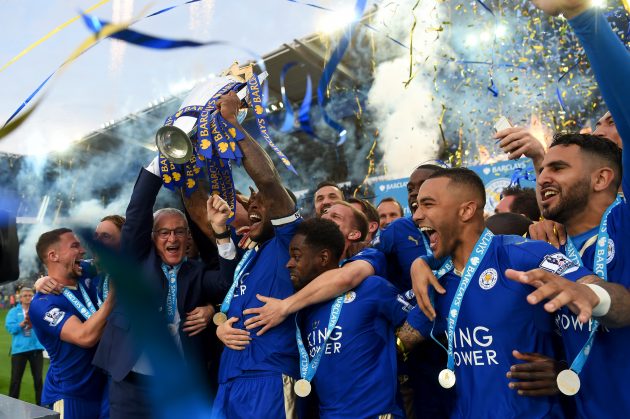Five substitutions and fixture congestion: Won’t somebody think of the rich Premier League superclubs?

It was a good weekend for sales of tiny violins in football’s moneyed north-west heartlands, as familiar debates about five substitutes and fixture scheduling bobbed to the surface.
On Sunday, Pep Guardiola revealed he and Jurgen Klopp enjoyed a touchline grumble about the cap on mid-game changes after Manchester City and Liverpool’s draw.
Twenty-four hours earlier, Ole Gunnar Solskjaer also had the Premier League in his crosshairs as he bemoaned his Manchester United team’s Saturday lunchtime kick-off.
Another week, another bout of sabre rattling from English football’s self-appointed superclubs.
Guardiola and Klopp seem bemused at resistance from other Premier League teams to allowing more substitutions when the reason is clear.
Others without the resources of City and Liverpool quite rightly feel that additional changes would only stack the odds further in favour of the biggest sides.
Aston Villa manager Dean Smith reiterated it after his outfit embarrassed another of the so-called Big Six, Arsenal, 3-0 in north London on Sunday evening.
Three times the matter has been discussed by top-flight chairmen and on each occasion it has been defeated.
Five subs debate refuses to die
As Guardiola’s comments suggest, however, the five subs debate refuses to die.
Other European federations have allowed it, continuing a protocol introduced for the delayed end of last season, when fixtures had to be played more regularly than usual.
Those in favour claim it is a player welfare issue, that this campaign’s condensed calendar, due to a late start, means footballers are under too much strain.
Injuries in the first six weeks of the Premier League were up 15 per cent on last year.
And Guardiola was quick to cite Trent Alexander-Arnold limping off against City as evidence.
What City, Liverpool and others want, then, is to be able to make more changes. To draw on the strength in depth that their squads possess.
But there are other ways to do that. Why not rotate the team more?
These players that Guardiola and Klopp are so keen to bring on, why not start them?
City’s bench on Sunday included three men who cost a combined £91m: Bernardo Silva, Nathan Ake and John Stones.
Alongside them was Phil Foden, a player Guardiola said he wouldn’t sell even for €500m. They are overflowing with star talent.
Liverpool, meanwhile, had £60m Naby Keita in their dugout, while both teams boast academies that produce scores of promising youngsters.
If there is concern that some are at risk of injury, don’t risk them. Did Alexander-Arnold need to play 82 minutes in midweek when Liverpool long had a 5-0 win wrapped up?
Big clubs want it their own way
The bottom line is that these clubs are better equipped to prosper even when they rotate their team than anyone else.
City and Liverpool are the second and third richest teams in England, home of by far the world’s richest league.
They have the resources to hire the best managers, to solve problems just like this.
Solskjaer’s complaint about playing too soon after a European away game, while more justified, goes to a similar point.
Yes, big teams are asked to play more regularly. But that is because they are in the privileged position of qualifying for the Champions League.
They are handsomely rewarded for that, which in turn makes them better placed to adapt.
As this season has already shown, the biggest clubs seem dismayed when they don’t get their way.

Project Big Picture was, at its heart, an attempt to seize control of decision making.
Those with the biggest fanbase believe they deserve more of the money and a greater say.
And now that a condensed calendar means they can’t pick their best XI every time, threatening their dominance?
Those same clubs demand more substitutions.
City and Liverpool have set new standards of excellence in the last three years.
First, Guardiola’s team won the league with a record points tally. Last term Klopp’s side sent records tumbling on their way to the trophy.
But is such supremacy what we want, year after year?
The most memorable recent campaign was Leicester’s shock triumph in 2016.
That the Foxes and Southampton are among the pace-setters in this unusual season makes it all the more interesting.
Unless, of course, you are a superclub wanting to swing the odds further in your favour and cement a position for decades to come.
